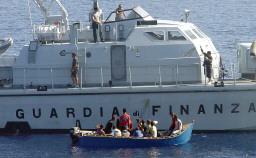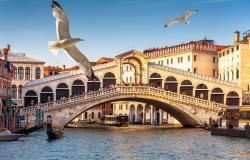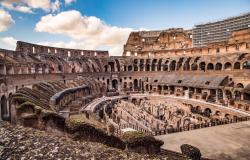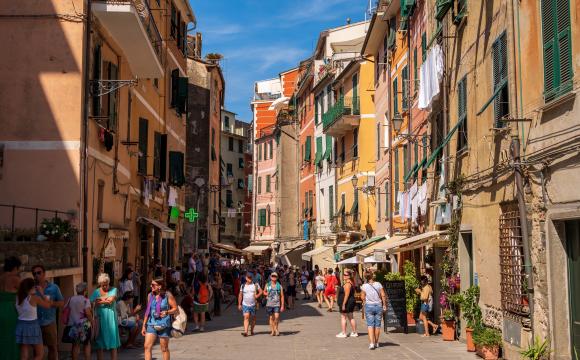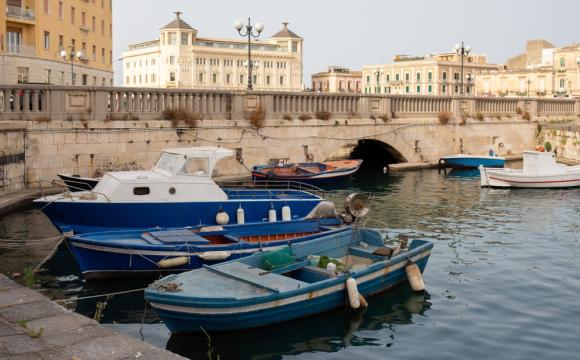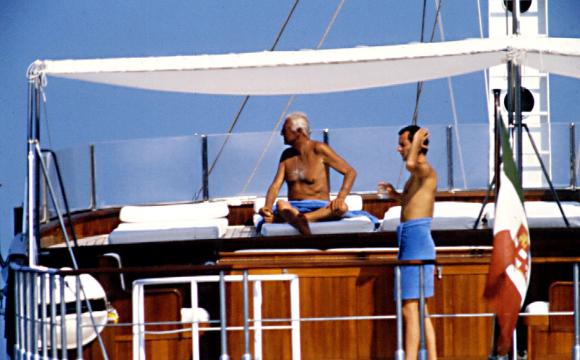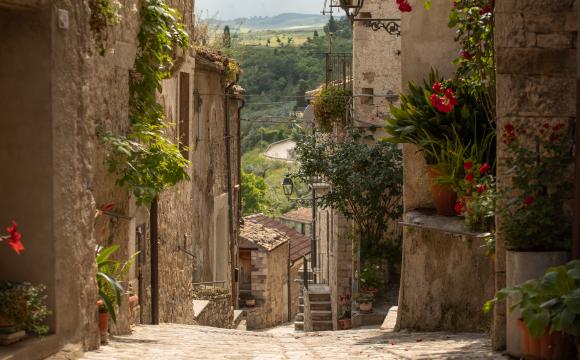Italy's new policy of taking back to Libya migrants rescued in international waters appears to be stopping the departure of migrant-loaded boats from other African countries, Interior Minister Roberto Maroni said on Tuesday.
Speaking during a visit to Libya, Maroni said that according to Libyan intelligence, boats have now stopped setting off from Libya, Tunisia, Algeria and Morocco.
''The return policy has proven successful,'' said Maroni, adding that Libya was doing ''a major job in preventing human trafficking in its own territories''.
Italy's new policy is aimed at stopping would-be immigrants from trying to reach the country's southernmost island of Lampedusa.
The migrants, rescued by Italian coast guard and navy vessels, have been taken back to Libya, the most popular jumping-off point for illegal immigrants.
Italy has so far returned to Libya more than 500 migrants despite criticism from the United Nations, the Catholic Church and humanitarian organisations.
The return of illegal immigrants and joint sea patrols beginning this week are part of a Friendship, Partnership and Cooperation Treaty between Rome and Tripoli signed in August 2008.
Maroni's visit coincided with the arrival of three Italian patrol boats which Libya will use to stem the flow of immigrant-laden boats setting off from its shores.
The patrol boats will be docked at Zuwarah, a port town some 70 km west of Tripoli where the Libyan Coast Guard has set up its operational centre on migrant control.
Ten Italian navy maintenance experts have already arrived in Zuwarah to take part in the operation and are expected to be stationed there for at least three years.
Maroni said Libyan and Italian intelligence would also work together to exchange information because this was ''fundamental in successfully preventing departures''.
Coast guard officials in Italy reported on Tuesday that the new hard-line policy has so far managed to halt departures from Libya but human traffickers who ferry the migrants could instead set off from Tunisia aboard smaller vessels.
Four dinghies and small boats were rescued or intercepted by the Coast Guard on Tuesday off Sicily and were presumed to have set off from Tunisia.
CHURCH AND UNHCR REITERATE OPPOSITION.
The policy, however, continued to come under a barrage of criticism, with the the United Nations refugee agency UNHCR and the Vatican reiterating their opposition on Tuesday.
Msgr Agostino Marchetto, head of the Pontifical Council for Migrants, said restrictive immigration laws were ''forcing many migrants to seek alternative and illegal ways'' of reaching European countries and consequently fostering human trafficking.
He called human trafficking ''one of the most disgraceful phenomenon of our times...a tremendous offence against human dignity''.
Marchetto warned that Italy's so-called 'push-back' measure would not stop the immigration emergency in the Mediterranean and he urged the repatriation of migrants only if they can be helped make a decent living once back home, with micro-credit ventures and loans.
UNHCR's spokeswoman in Italy, Laura Boldrini, complained that Libya does not allow its representatives to visit all its migrant holding centres, implying that it could not help migrants which Italy is returning to the African country.
Boldrini told RAI radio that although the agency has an office with local staff and two foreign representatives, it is there ''unofficially'':
''Since Libya does not officially recognise the UNHCR this has repercussions,'' said Boldrini.
''We have access to only four or five migrant centres near Tripoli, not to all the camps. Whoever comes to Libya without documents is transferred to these holding centres. We want to be able to visit all of them but don't have permission,'' said Boldrini, stressing that this makes it impossible to help all possible asylum seekers.
''Moreover, Libya doesn't have a law on asylum, it hasn't signed the (1951 Geneva Refugee)Convention and it doesn't have a system to deal with refugees''.
''We're concerned that the migrant-loaded boats that are being 'pushed back' to Libya could carry people who are fleeing from persecutions or conflicts''.
''You can't send them all back. Every person needs to be identified and children and pregnant women should not be sent back. We know for certain there were children and adults who were seeking asylum among those taken back to Libya. That's why we've asked Italy to readmit any that want to seek asylum,'' said Boldrini.
Italy has urged Libya to recognise the UNHCR's office in Tripoli and ease its task of helping refugees and asylum seekers.
It has also asked Libya to allow the International Organisation for Migration (IOM) to organise the repatriation of migrants in its holding camps.
Costs for the repatriations would be funded by the European Union if the 27-nation Union agrees, Italy said.
